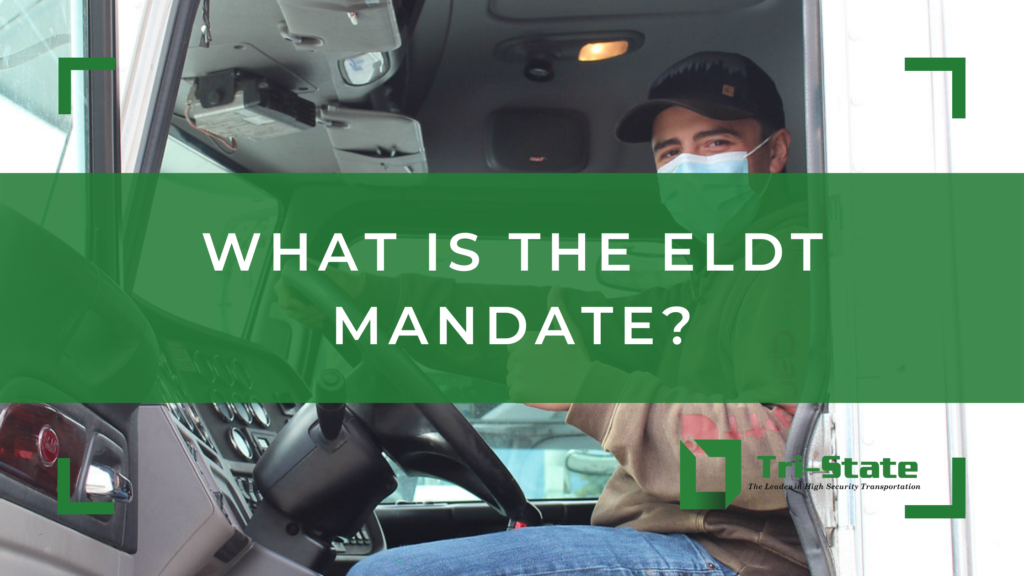Comprehensive Overview of the ELDT Mandate

What is the ELDT mandate?
The ELDT (entry-level driver training) mandate covers a new list of requirements, with higher standards for entry-level driver training. These new requirements are set at the federal level by the FMCSA (Federal Motor Carrier Safety Administration). All commercial driver’s license (CDL) training providers must comply with the outlined minimum requirements. In other words, entry-level drivers will be trained (by ELDT approved trainers) using these new federal standards before setting out on the road.
The aim of the ELDT mandate is to raise the standards of entry-level driver training so that new drivers are better trained, and therefore safer on the road.
What is included in the new ELDT program?
The new ELDT Mandate includes formal training that is a combination of classroom training along with training behind-the-wheel and on the road. The training covers about 30 subjects. Each student must be able to show proficiency in the subjects and score at least 80% on the assessment.
Before students are allowed to take the CDL exam, the training provider must approve them proficient in the CDL skills curriculum, along with providing documents showing the number of behind-the-wheel training hours they have.
Who does the ELDT affect?
The ELDT Mandate will apply to anyone:
- Getting their Class A or Class B CDL for the first time.
- Upgrading from Class B to Class A CDL.
- Obtaining hazardous materials (H), school bus (S), or passenger (P) endorsements for the first time.
When did the ELDT take effect?
The ELDT mandate took effect on February 7th, 2022. Because the ELDT mandate is not retroactive, anyone who was issued a CDL or an H, S, or P endorsement prior to this date will not be required to take this new training. Also, any drivers that obtained their Class A or Class B CDL for the first time or an upgrade before February 7th, 2022 will not be affected.
ELDT Exemptions and Exceptions
In addition to obtaining a CDL, upgrade from Class B to Class A CDL, and H, S, or P endorsements for the first time prior to February 7th, 2022, there are two other exemptions:
- Individuals who meet at least one of the exceptions for taking a skills test in 49 CFR Part 383 are exempt from ELDT requirements.
- Any individual who received a Commercial Learner’s Permit (CLP) before the aforementioned date and receives a CDL before the CLP expires is also exempt.
ELDT Implications for Drivers and Trucking Companies
For CDL training providers, this means that they need to be approved by the FMCSA in order to provide training. In addition, these rules apply to any company that is training entry-level drivers, including private fleets. Trainers must become qualified instructors authorized to deliver ELDT before they can provide any ELDT training.
For drivers, this means that they should seek out only FMCSA approved CDL training schools, listed on the FMSCA’s Training Provider Registry. Furthermore, students need to complete formal training that meets these updated requirements and receive a trainer’s endorsement that they are proficient in the CDL’s skills curriculum.
